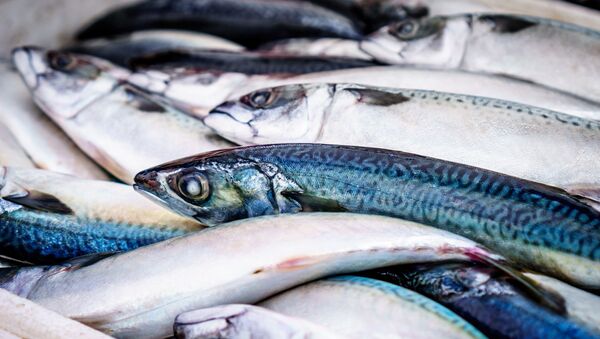In a bid to achieve carbon neutrality, Norway's largest cruise operator Hurtigruten, which accounts for two percent of the international market, intends to reduce pollution by switching to biofuel made of dead fish, of which there is no shortage owing to Norway's mighty fishing industry.
Hurtigruten CEO Daniel Skjeldam described dead fish as a 'resource and solution', proclaiming the company's goal to become the world's first fossil-free cruise operator and go completely carbon neutral by 2050 in a press release. Hurtigruten communications manager Rune Thomas Ege described biogas as 'the most eco-friendly fuel available today' adding that Hurtigruten's ships will be 'literally driven by nature'.
Cutaways from fisheries 🐟🐠 and other organic waste will soon be used to power Hurtigruten ships 🚢🌱#hurtigruten #green #biogas #greenenergy #sustainable pic.twitter.com/ad9HImk1Ea
— Hurtigruten (@Hurtigruten) 20 ноября 2018 г.
As part of this goal, Hurtigruten is also investing NOK 7 billion ($810 million) in its environmental projects, which include six ships that will run on biogas, in addition to batteries and liquefied natural gas. The first ship could be ready as early as next year.
READ MORE: 'Green Shift': Norway Poised to Switch to Electric Planes in 2040
Minimising the carbon footprint and the environmental impact has become a flagship project for the 125-year-old company, which runs ships along Norway's fjords and arranges voyages to the pristine areas of Antarctica and the Arctic. Skjeldam stressed that being the world's largest cruise operator 'came with a responsibility'.
Earlier this year, Hurtigruten banned single-use plastics in a bid to become more sustainable. Straws alone make up 2.8 tonnes of plastic waste each year, while 400,000 plastic glasses have a weight of five tonnes, the company's press release read. All in all, Hurtgruten intends to get rid of 27 tonnes of plastic waste annually.
Founded in 1893, Hurtigruten (literally: "Express Route") is Norway's largest cruise, cargo and ferry operator and owns 15 cruise ships.
Norway's booming fishing industry is the country's second-largest generator of income second to only the petroleum industry. It also produces ample leftovers, which may be converted into liquid biogas in a smelly process, when organic matter breaks down without oxygen. The result of this process consists of mostly methane and carbon dioxide, which later is purified to create liquid biogas.
READ MORE: Denmark Pledges to Stop Diesel, Petrol Cars by 2030 in 'Ambitious' Climate Plan




